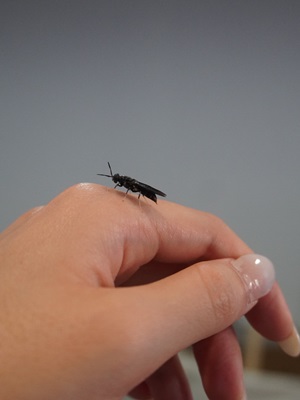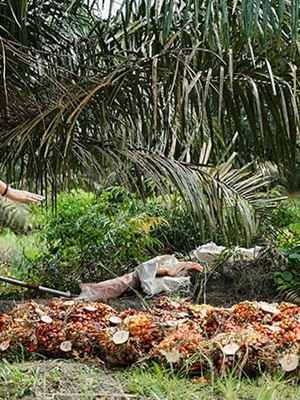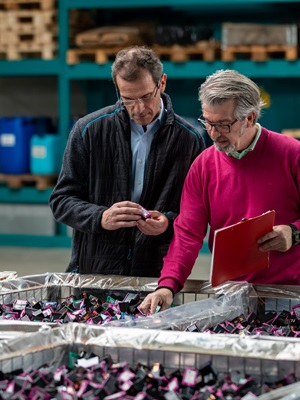When most people think about making sustainable changes to their lifestyle, plastic waste and transport emissions are often top of mind. Meanwhile, the impact that switching to a plant-based diet can make is overlooked.
In almost every conversation I have with people who want to live sustainably, there’s no mention of what’s on their plate. Instead, most tend to focus on other, perhaps better-known aspects of sustainability, such as choosing to fly less and going plastic-free. But while all climate action is invaluable, it’s a mistake to gloss over the fact that reducing meat and dairy must be at the core of one’s climate action efforts. Let’s unpack why that is.
Why meat and dairy costs our planet
In 2013, the United Nations made the link between animal agriculture and carbon emissions well known. According to data in the 2013 report, livestock farming is responsible for as much as 14.5% of global carbon emissions. It accounts for the bulk of the emissions produced by the world’s food system.
To really put into context the huge impact of meat production on the planet, let’s compare that figure to flying, which for many people represents one of the most environmentally damaging human activities today. It might shock you to know that the aviation industry accounts for 2.5% of global carbon dioxide emissions. Even if we factor in non-carbon dioxide impacts on the climate, it bumps aviation’s impact to around 3.5%.
One of the major reasons why meat is so environmentally taxing is due to its enormous use of land to raise animals and produce feed.
To continue supplying beef, for example, cattle ranchers are clearing forest land to raise cows and grow soybeans for feed. Cows raised for beef and dairy alone is estimated to drive 41% of global deforestation. It is also a contributor to methane, a greenhouse gas that is 28-times more potent than carbon dioxide.
In fact, the output of greenhouse gases during digestion by cows accounts for 39% of the total emissions from the animal agriculture industry, the UN’s report outlined.
Vegan diets are the ‘single biggest way’ to reduce one’s impact
With animal agriculture making up a huge part of humanity’s burden on the planet, one of the easiest ways to reduce our impact is to cut out meat and dairy from our diets. In 2018, a landmark Oxford University study described vegan diets as the “single biggest way” to reduce one’s footprint.
Published in the journal Science, the meta-analysis found that at present, a staggering 80% of the world’s farmland is being used for livestock, despite producing only 18% of food calories.
The study’s authors assessed the entire planetary impact of various foods, including factors such as land use, carbon emissions, water use, eutrophication and acidification. The latter two factors refer to the pollution of water and air, respectively.
When you compare beef to tofu, the results are clear. While 100g of protein in beef releases around 105 kilograms of greenhouse gases, tofu produces a meagre 3.5kg for the same amount of protein.
“A vegan diet is probably the single biggest way to reduce your impact on planet Earth, not just greenhouse gases, but global acidification, eutrophication, land use and water use,” explained Joseph Poore of the Department of Zoology and the School of Geography and Environment at the University of Oxford who led the study. “It is far bigger than cutting down on your flights or buying an electric car.”
According to the study’s findings, vegan diets reduce your food emissions by a whopping 73% while saving 3.1 billion hectares of land. “This would take pressure off the world’s tropical forests and release land back to nature.”
Even high-impact vegan foods trump ‘sustainable’ meat and dairy
Some argue that choosing meat and dairy from sustainable producers would help alleviate the impact the industry has on the planet. This line of argument has increased in popularity in recent years, especially as more consumers have turned towards plant-based diets in the name of sustainability.
Part of a wave of anti-climate misinformation, naysayers suggest that the negative aspects of specific vegan foods like avocados and almonds outweighs the overall benefits that vegan diets could have.
But that’s false too. Earlier this year, Oxford researchers again released data showing the significant gains of a plant-based diet over “low impact” meat eaters.
“Our dietary choices have a big impact on the planet. Cherry-picking data on high impact plant-based food or low impact meat can obscure the clear relationship between animal-based foods and the environment,” said Professor Peter Scarborough of the University of Oxford, lead author of the paper published in the journal Nature Food.
In comparison to high meat eaters, vegan diets led to a 75% reduction in greenhouse gas emissions, water pollution and land use. Going vegan also lessened harm to wildlife by 66% and water waste by 54%. Researchers concluded that even though there was variation between low and high meat eaters in terms of their impact, the overall toll that animal-based food has was “clear” and “should prompt the reduction of the latter”.
“Our results, which use data from over 38,000 farms in over 100 countries, show that high meat diets have the biggest impact for many important environmental indicators, including climate change and biodiversity loss,” he added. “Cutting down the amount of meat and dairy in your diet can make a big difference to your dietary footprint.”
COP28 goes green
With mounting evidence proving the link between meat-heavy diets and the climate crisis, the pressure has won over COP28 organisers this year.
Unlike previous conferences, the United Nations climate summit this month in Dubai has drastically cut out the amount of meat on its menu. It came after longstanding criticism over its unsustainable food catering in the past.
“Food systems are intrinsically linked to the fate of our natural world,” shared United Arab Emirates environment minister Mariam Almheiri in a press release, which detailed the two-thirds plant-based menu that will be offered. “We have made the progressive decision to ensure that we explore how the catering provided across the event can be responsible and climate conscious.”
The conference also hosted a number of panels and talks specifically focused on tackling the world’s broken food system too. From alternative protein solutions, such as plant-based and cultivated meat and dairy, to combating the related issues of food waste, a greater spotlight is being shone on cleaning up our plates.
With COP28 hopping on board to embrace plant-based diets, it is my hope that more of us will recognise the core link between what we eat and our footprint. Choosing a greener plate must be at the heart of any meaningful climate conversation and action.
Posted 13/12/2023

















